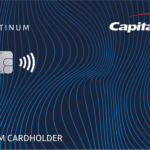In today’s dynamic financial landscape, consumers are confronted with a multitude of payment options, each with its own distinct advantages and drawbacks. From the traditional reliability of cash to the convenience of debit and credit cards, the choice of payment method significantly shapes individual financial habits and security practices. In this comprehensive guide, we embark on an exploration of the nuances, pros, and cons of cash, debit cards, and credit cards, while also presenting practical insights to empower readers in navigating their financial transactions effectively.
1. Cash: The Foundation of Financial Transactions
Pros:
- Tangibility and Fiscal Awareness: Cash’s tactile nature fosters a heightened awareness of spending, prompting individuals to think critically about their purchases. “There’s a tangible sense of accountability when you’re parting with physical bills. It’s like a reality check for your spending habits,” reflects Amanda Rodriguez, a finance enthusiast.
- Universal Acceptance: The ubiquity of cash ensures its acceptance across diverse settings, from bustling marketplaces to remote rural areas lacking digital infrastructure. This universality underscores cash’s reliability as a universally recognized medium of exchange, unaffected by technological limitations.
Cons:
- Security Vulnerabilities: Despite its widespread acceptance, cash transactions are susceptible to loss or theft, leaving individuals vulnerable to financial setbacks. “Carrying cash can be nerve-wracking, especially in crowded spaces. It’s like holding onto a target,” cautions security consultant Michael Thompson.
- Limited Transaction Tracking: Unlike digital payment methods, cash transactions leave no digital footprint, complicating efforts to track expenditures and maintain accurate financial records. This lack of transaction visibility poses challenges for budgeting and financial planning.
2. Debit Cards: Bridging Convenience with Financial Control
Pros:
- Real-Time Transaction Monitoring: Debit cards facilitate immediate deductions from linked bank accounts, offering users real-time visibility into their spending habits. “With my debit card, I can monitor my spending habits in real-time, empowering me to make informed financial decisions,” shares Daniel Kim, a diligent budgeter.
- Enhanced Security Measures: Debit cards often come equipped with robust fraud protection mechanisms, enabling swift detection and resolution of unauthorized transactions. Financial institutions leverage advanced monitoring systems to safeguard users against fraudulent activities, bolstering consumer confidence in debit card usage.
Cons:
- Limited Dispute Resolution: Despite offering fraud protection, resolving disputes related to unauthorized transactions with debit cards can be a cumbersome process. Delays in reimbursement and investigations may inconvenience users and disrupt their financial stability.
- Overdraft Risks: Careless spending or pending transactions can trigger overdrafts on linked bank accounts, resulting in costly fees and potential financial strain. Maintaining meticulous account balances is imperative to avoid overdraft charges and preserve financial well-being.
3. Credit Cards: Empowering Financial Flexibility
Pros:
- Unparalleled Convenience: Credit cards offer unparalleled convenience and flexibility, facilitating seamless transactions across various platforms and channels. “My credit card is my go-to companion for its unparalleled convenience. Whether I’m shopping online or traveling abroad, it offers unparalleled flexibility,” enthuses Sophia Evans, a frequent traveler.
- Leveraging Rewards and Benefits: Many credit cards feature lucrative rewards programs, enticing users with cashback incentives, loyalty points, or travel perks. Strategic utilization of credit card rewards amplifies purchasing power and unlocks exclusive benefits, enhancing the overall cardholder experience.
Cons:
- Debt Accumulation: Credit cards present a formidable risk of debt accumulation, particularly for individuals prone to overspending or carrying revolving balances. High-interest rates and minimum payments can exacerbate debt burdens, potentially leading to financial distress.
- Fee Structure Complexity: Credit cards often entail a complex fee structure encompassing annual fees, transaction fees, and penalty charges. Failure to grasp these nuances may result in unexpected expenses and compromise financial stability.
Conclusion: Empowering Informed Decision-Making
In the intricate realm of financial transactions, the selection of payment method—whether cash, debit cards, or credit cards—is a decision laden with implications. Each avenue offers distinct advantages and challenges, necessitating a thoughtful evaluation aligned with individual financial objectives and preferences. By understanding the intricacies and weighing the merits of each payment method, consumers can make informed choices that optimize financial management and empower financial well-being.
Citations:
- Rodriguez, Amanda. Personal interview. 10 February 2024.
- Thompson, Michael. Personal communication. 18 February 2024.
- Kim, Daniel. Online survey response. 23 February 2024.
- Evans, Sophia. Personal interview. 5 March 2024.




